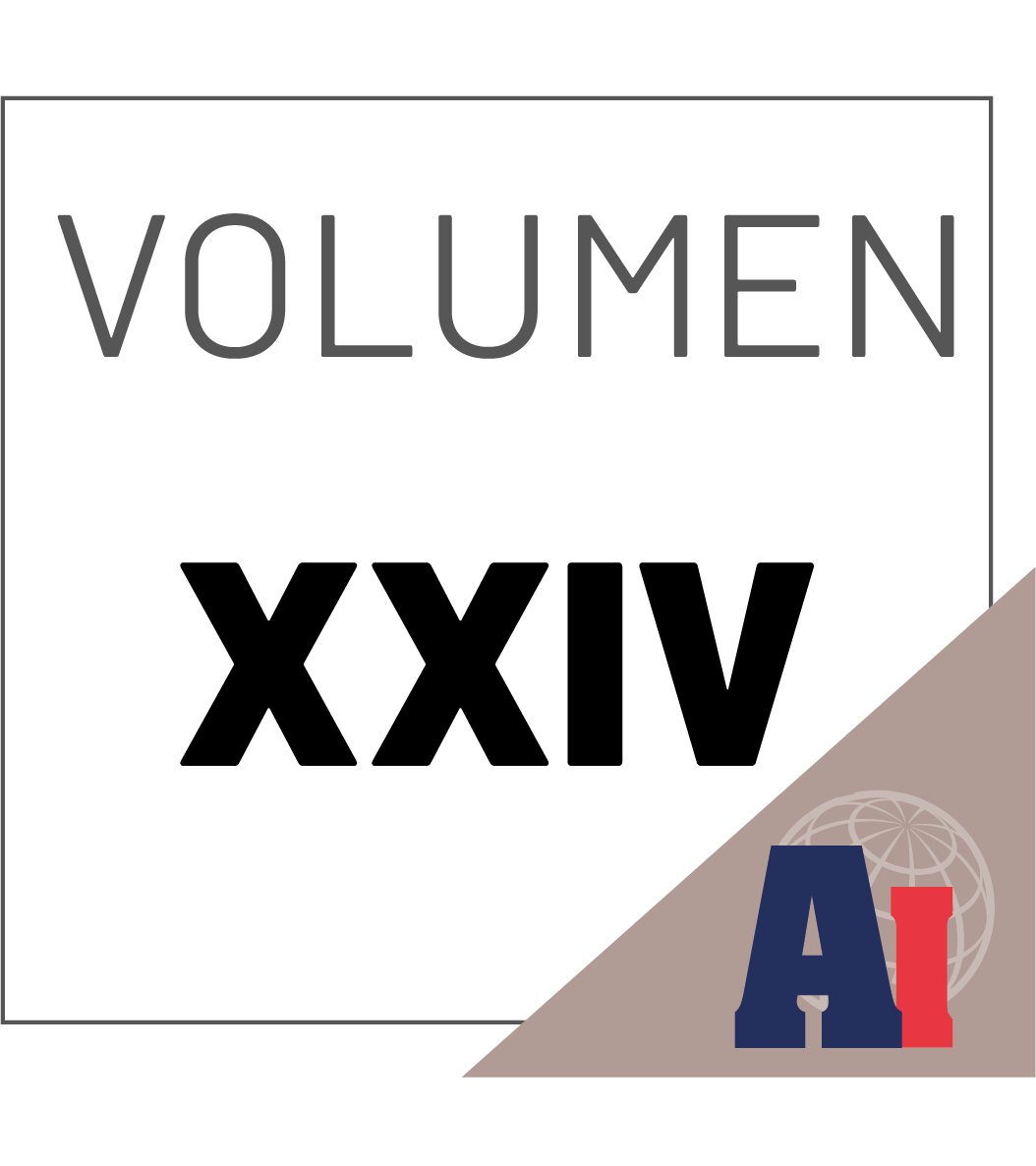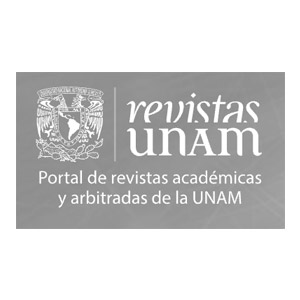Refugiados, litigación climática en el sur global y cambio climático: enfrentando la brecha en la protección de refugiados climáticos en el derecho internacional
Climate change, as the main catalyst for catastrophes in this century, is closely linked to large groups of human beings in forced displacement. This group, called climate migrants - people who, against their will, have to leave their places of origin due to climate phenomena. However, this group of human beings, which tends to expand expressively in the coming decades, reaching somewhere between 200 million to 1.2 billion people by 2050, still does not enjoy specific protection, for what they could be considered: refugees. Despite this, the recognition of this category of migrants as refugees is of immediate importance, due to the need for protection, which has not yet been reflected in international law. Thus, at the moment, what advances have been achieved regarding the protection of climate “refugees” and regarding the evolution of the use of the expression? The present work is developed through bibliographic and documentary research as a research technique, and the analytical-deductive method for analyzing information. In this context, climate strategic litigation, a mechanism through which climate impacts on human rights can be claimed in international courts, could be a possible short-term solution to the legislative gap for refugee protection.
Detalles del artículo
Uso de licencias Creative Commons (CC)
A partir del volumen 25, todos los textos publicados por el Anuario Mexicano de Derecho Internacional sin excepción, se distribuyen amparados con la licencia CC BY-NC 4.0 Internacional, que permite a terceros utilizar lo publicado, siempre que mencionen la autoría del trabajo y la primera publicación en esta revista.
Del volumen I al XXIV de Anuario Mexicano de Derecho Internacional la licencia utilizada era Atribución-NoComercial-SinDerivadas 4.0 Internacional
Derechos de autoras o autores
De acuerdo con la legislación vigente de derechos de autor el Anuario Mexicano de Derecho Internacional reconoce y respeta el derecho moral de las autoras o autores, así como la titularidad del derecho patrimonial, el cual será transferido —de forma no exclusiva— al Anuario para permitir su difusión legal en acceso abierto.
Autoras o autores pueden realizar otros acuerdos contractuales independientes y adicionales para la distribución no exclusiva de la versión del artículo publicado en el Anuario Mexicano de Derecho Internacional (por ejemplo, incluirlo en un repositorio institucional o darlo a conocer en otros medios en papel o electrónicos), siempre que se indique clara y explícitamente que el trabajo se publicó por primera vez en el Anuario.
Para todo lo anterior, deben remitir la carta de transmisión de derechos patrimoniales de la primera publicación, debidamente requisitada y firmada por las autoras o autores. Este formato debe ser remitido en PDF a través de la plataforma OJS.
Derechos de lectoras o lectores
Con base en los principios de acceso abierto las lectoras o lectores de la revista tienen derecho a la libre lectura, impresión y distribución de los contenidos del Anuario por cualquier medio, de manera inmediata a la publicación en línea de los contenidos. El único requisito para esto es que siempre se indique clara y explícitamente que el trabajo se publicó por primera vez en el Anuario Mexicano de Derecho Internacional y se cite de manera correcta la fuente incluyendo el DOI correspondiente.
Consúltese https://creativecommons.org/licenses/by-nc/4.0/

Esta obra está bajo una licencia internacional Creative Commons Atribución-NoComercial 4.0.
Citas
ACNUR. Declaração de Cartagena, 1984, https://www.acnur.org/fileadmin/Documentos/portugues/BD_Legal/Instrumentos_Internacionais/Declaracao_de_Cartagena.pdf
Burgess, Stephen F., “Environment and human security in the Horn of Africa”, Journal of Human Security, vol. 4, núm. 2, 2008, pp. 37-61. DOI: https://doi.org/10.3316/JHS0402037
CETESB, Plano de Ação de Bali, 2007, https://cetesb.sp.gov.br/proclima/wp-content/uploads/sites/36/2014/08/unfccc_plano_acao_bali.pdf
CIEL, Malé Declaration on the Human Dimension of Global Climate Change, 2007, http://www.ciel.org/Publications/Male_Declaration_Nov07.pdf
COE-PACE, Doc. 9791, 16 April 2003, Environment and human rights. Report. Committee on the Environment, Agriculture and Local and Regional Affairs. Parliamentary Assembly of the Council of Europe, https://assembly.coe.int/nw/xml/XRef/X2H-Xref-ViewHTML.asp?FileID=10145&lang=EN
Cohen, Marc J. and Singh, Bhawan, Climate change resilience: The case of Haiti, Oxfam International, 2014.
Columbia Climate School, Colombian Youth sue for Recognition of the Rights of Future Generations. Sabin Center for Climate Chance Law. https://news.climate.columbia.edu/2018/03/21/colombian-youth-lawsuit-climate-rainforest/
Eckstein, David et al., Global climate risk index 2020, Bonn, Germanwatch, 2019, https://germanwatch.org/sites/default/files/20-2-01e%20Global%20Climate%20Risk%20Index%202020_14.pdf
El-Hinnawi, Essam E., Environmental Refugees, Nairobi, United Nations Environment Programme, 1985.
FEM - Fórum Econômico Mundial. Climate Refugees - the World’s Forgotten Victims, https://www.weforum.org/agenda/2021/06/climate-refugees-the-world-s-forgotten-victims/.
ILO, Climate Change and Migration Issues in the Pacific, https://www.ilo.org/dyn/migpractice/docs/261/Pacific.pdf
IOM, Definitional Issues - Climate Migrants, https://www.iom.int/definitional-issues
Jacobson, Jodi L., “Environmental refugees: a yardstick of habitability”, Bulletin of Science, Technology and Society, vol. 8, no. 3, 1988. DOI: https://doi.org/10.1177/027046768800800304
Koser, Khalid, “Why migration matters”, Current History, vol. 108, no. 717, April 2009, pp. 147-153. DOI: https://doi.org/10.1525/curh.2009.108.717.147
Miller, DeMond S, “Climate refugees and the human cost of global climate change”, Environmental Justice, vol. 10, no. 4, August 2017, pp. 89-92, https://doi.org/10.1089/env.2017.29027.dm DOI: https://doi.org/10.1089/env.2017.29027.dm
MSF - Médicos sem Fronteiras, Lago Chade: populações fogem da violência do Boko Haram, https://www.msf.org.br/noticias/lago-chade-populacoes-fogem-da-violencia-do-boko-haram
Myers, Norman and Kent, Jennifer, Environmental Exodus: An Emergent Crisis in the Global Arena, Washington D.C., Climate Institute, 1995.
Myers, Norman, “Environmental refugees in a globally warmed world”, Bioscience, vol. 43, no. 11, 1993, pp. 752-761. DOI: https://doi.org/10.2307/1312319
Newland, Kathleen, “The global compact for safe, orderly and regular migration: An unlikely achievement”, International Journal of Refugee Law, vol. 30, no. 4, 2018, pp. 657-660. DOI: https://doi.org/10.1093/ijrl/eey058
Nishimura, Lauren, “‘Climate change migrants’: Impediments to a protection framework and the need to incorporate migration into climate change adaptation strategies”, International Journal of Refugee Law, vol. 27, no.1, 2015, pp. 107-134. DOI: https://doi.org/10.1093/ijrl/eev002
OHCHR, Bachelet hails landmark recognition that having a healthy environment is a human right, https://www.ohchr.org/EN/NewsEvents/Pages/DisplayNews.aspx?NewsID=27635&LangID=
OHCHR, Ioane Teitiota v. New Zealand (advance unedited version), CCPR/C/127/D/2728/2016, UN Human Rights Committee (HRC), 7 January 2020, https://www.refworld.org/cases,HRC,5e26f7134.html
OHCHR, Historic UN Human Rights case opens door to climate change asylum claims, https://www.ohchr.org/EN/NewsEvents/Pages/DisplayNews.aspx?NewsID=25482
OHCHR, UN Human Rights Council, Report of the Office of the United Nations High Commissioner for Human Rights on the relationship between climate change and human rights, 15 January 2009, A/HRC/10/61, https://www.refworld.org/docid/498811532.html
IOM, IOM becomes related Organization to the UN, https://www.iom.int/news/iom-becomes-related-organization-un.
ONU, Drying Lake Chad Basin gives rise to crisis. Food insecurity, conflicts, terrorism, displacement and climate change effects compound challenges, https://www.un.org/africarenewal/magazine/december-2019-march-2020/drying-lake-chad-basin-gives-rise-crisis
ONU, Global Compact for Migration - Final Draft, 11 July 2018, https://refugeesmigrants.un.org/sites/default/files/180711_final_draft_0.pdf.
Oxfam, Ethiopia and the Horn of Africa hunger crisis, https://www.oxfam.org.au/what-we-do/emergencies/learn-about-current-emergencies/horn-of-africa-drought-and-food-crisis/
Peel, Jacqueline and Lin, Jolene, “Transnational climate litigation: The contribution of the global south”, American Journal of International Law, vol. 113, no. 4, 2019, pp. 679-726. DOI: https://doi.org/10.1017/ajil.2019.48
Piguet, Etienne, “Climate Change and Forced Migration. New Issues in Refugee Research”, UNHCR, Research Paper no. 153, 2008.
Savaresi, Annalisa; Cismas, Ioana; Hartmann, Jacques, “Why the world is looking to the Philippines for climate justice”, The Conversation, 2018. DOI: https://doi.org/10.64628/AB.tsccv934k
Savaresi, Annalisa and Hartmann, Jacques, “Using Human Rights Law to Address the Impacts of Climate Change: Early Reflections on the Carbon Majors Inquiry”, in LIN, Jolene and KYSAR, Douglas (eds.), Climate Change Litigation in the Asia Pacific, Cambridge, Cambridge University Press, 2020, pp. 73-93. DOI: https://doi.org/10.1017/9781108777810.005
Thomas, Evan et al., “Reducing drought emergencies in the Horn of Africa”, Science of The Total Environment, vol. 727, 2020, https://doi.org/10.1016/j.scitotenv.2020.138772 DOI: https://doi.org/10.1016/j.scitotenv.2020.138772
UN General Assembly, Refugees and stateless persons, 3 December 1949, A/RES/319, https://www.refworld.org/docid/3b00f1ed34.htm
UNFCC, Paris Agreement, 2015, https://unfccc.int/sites/default/files/english_paris_agreement.pdf
UNFCCC, Cancun Adaptation Framework, Draft Decision, CP.16, Outcome of the work of the Ad Hoc Working Group on long-term Cooperative Action under the Convention, https://unfccc.int/files/meetings/cop_16/application/pdf/cop16_lca.pdf#page=3
UNFCCC, Task Force on Displacement - Constituted Bodies, https://unfccc.int/process/bodies/constituted-bodies/WIMExCom/TFD#eq-5
UNFCCC, Workplan of the Task Force on Displacement, 2017-2018, https://unfccc.int/sites/default/files/tfd_workplan.pdf
UNHCR, Climate Change and Disaster Displacement, https://www.unhcr.org/climate-change-and-disasters.html
UNHCR, Global Compact on Refugees, https://www.unhcr.org/5c658aed4.pdf
UNHRC, “Report of the Special Rapporteur on the issue of human rights obligations relating to the enjoyment of a safe, clean, healthy and sustainable environment”, 2016, UN Doc, A/HRC/31/52
UNHCR, Rohingya Emergency, https://www.unhcr.org/rohingya-emergency.html
UNICEF, Climate change threatens lives and futures of over 19 million children in Bangladesh, 2019, https://www.unicef.org/press-releases/climate-change-threatens-lives-and-futures-over-19-million-children-bangladesh
Vedovato, Luis Renato, Franzolin, Cláudio José, and Roque, Luana Reis, “Deslocados ambientais: uma análise com base na dignidade da pessoa humana”, Revista Direito e Práxis, vol. 11, 2020, pp. 1654-1680 DOI: https://doi.org/10.1590/2179-8966/2019/40183
Warner, Koko, “Coordinated approaches to large-scale movements of people: Contributions of the Paris Agreement and the Global Compacts for migration and on refugees”, Population and Environment, vol. 39, no. 4, 2018. DOI: https://doi.org/10.1007/s11111-018-0299-1
WFP, Greater Horn of Africa Climate Risk and Food Security Atlas - Technical Summary, https://docs.wfp.org/api/documents/WFP-0000098939/download/
WHO, World Malaria Report, 2020, https://www.who.int/docs/default-source/malaria/world-malaria-reports/9789240015791-double-page-view.pdf?sfvrsn=2c24349d_5
World Bank, Glaciers of the Himalayas - World Bank Report, 2021, https://www.worldbank.org/en/news/press-release/2021/06/01/to-slow-himalayan-glacier-melt-curbing-air-pollution-is-key
Yoshida, Keina and Setzer, Joana, “The trends and challenges of climate change litigation and human rights”, European Human Rights Law Review, 2020.
Yumul, Graciano P. et al., “Extreme weather events and related disasters in the Philippines, 2004–08: a sign of what climate change will mean?”, Disasters, vol. 35, no. 2, 2011. DOI: https://doi.org/10.1111/j.1467-7717.2010.01216.x
































